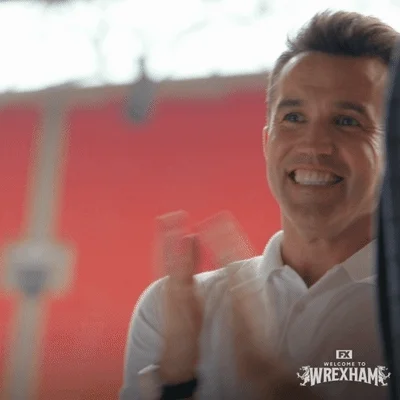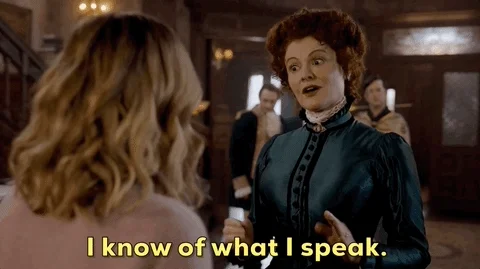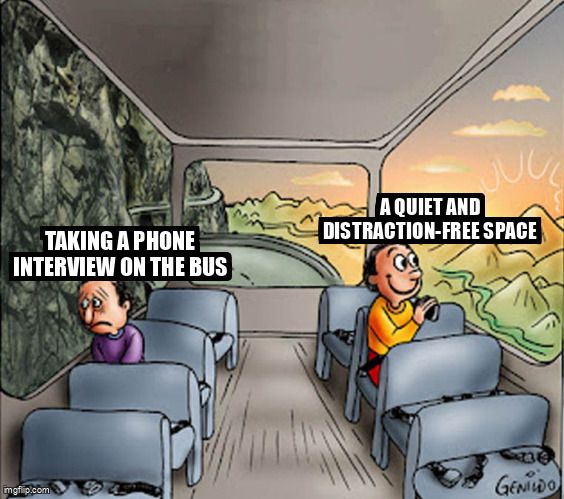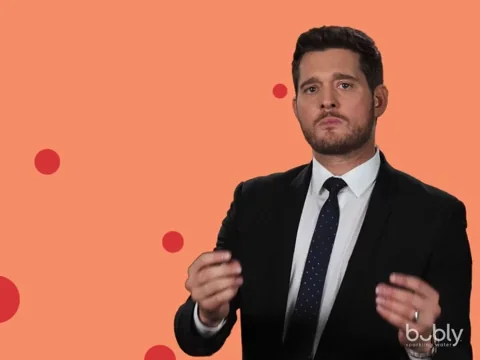You're on the job market and you've found yourself facing down a phone interview.
You've crafted a resume, written a cover letter that would make your favourite English teacher proud, and provided all of the necessary work samples.

You've scored the interview, but now you actually have to do it. In most instances, making it to the phone screen indicates that you've caught HR's eye. A phone interview is usually the first of a few interviews. The average interview process will include:
A phone screen with someone in HR (usually someone junior to the next person you'll interview with)
One or two rounds of in-person interviews
Occasionally, a presentation component
Get ready to build your toolkit and fine tune your recipe for a seamless phone screen!
Phone vs. In-Person Interviews
An interview is an interview, right? Well, not exactly. Both interview stages are important, but they tend to have different characteristics, including length, format, the types of questions you'll be asked, and who is conducting the interview.

Phone Interview ☎️
15 - 30 minutes in length
Questions tend to focus on previous experiences, qualifications, and potential plans
Usually conducted by HR assistants or HR coordinators
Typically speaking with one person at a time
Focused on getting to know you as a candidate and painting a picture of professional experiences and education (e.g. providing succinct and concrete examples of who you are as a candidate, focusing on how you represent yourself)
In-Person Interview 🏢
30 minutes + in length
Questions are focused specifically on the job description and articulating how you fit the position
Tend to be conducted by executive-level or management teams
Can be in a panel format with two or three people present
Can sometimes include a presentation or demonstrative component
Focused on assessing how you present yourself (e.g. body language, clothing choice, personal style, etc.)
Do Your Research
Regardless of who you're interviewing with, it is helpful to have a high-level understanding of the company. It is not uncommon for interviewers to ask:
"What do you know about our company?"
"How did you hear about us?"
Having a well-crafted answer to both of these questions will help you in the long run.
The beauty of a phone interview is that you can have notes in front of you! While there's no need to deep-dive like you're creeping your partner's exes on social media, having talking points on the following will help set you apart.
To demonstrate that you're prepared and informed, it's a good idea to have an understanding of things like:
Company mission
Recent company initiatives
Specific products or services that stand out to you
The needs of the company (What can you provide them?)

Doing your research into the company as well as its mission, vision, and values helps you to come across as prepared and confident. This is an important step in articulating your value and will help you create your elevator pitch!
Quiz
Carmen has a phone interview with her dream company for a sales position. What should she research beforehand? Select all that apply:
What to Expect

Phone interviews (also sometimes called phone screenings) are a soft start to the interview process, usually aimed at gauging whether or not your background and experience align with the role and the needs of the company.
You can usually expect a phone interview after you've applied and your resume has been reviewed. In the average interview process, you'll usually have a phone screen. Then, if you're shortlisted, you'll proceed to an in-person interview.
Indeed offers practical tips: Screening Interview Questions (With Examples).
The questions in a screening interview will typically include:

"Tell me about yourself."
How to answer:
Briefly highlight your education and experience, as well as additional alignment for the role.
If I were answering this question, I would say something like: "I have a Bachelor of Arts in Sociology and a Master of Arts in Humanities. I specialize in supporting learners at the post-secondary level. I am interested in joining (insert organization) and leveraging my ______ skills".

"Why are you searching for a job?"
How to answer:
This is a great chance to highlight why you want to move on. Highlight the opportunity, and remember to avoid bad-mouthing any previous experiences or employers.
For example: "I have learned a lot about myself in [x] role, where I was able to develop my ____ skills and am looking for an opportunity to leverage [y] skills in my next opportunity."

"Why do you want this job?"
How to answer:
Employers will ask this question to get a sense of how prepared a candidate is. A good answer to this question will include elements like growth opportunities, training opportunities, and the reputation of the company. Highlighting these elements in your answer will demonstrate that you have done your research.
For example: "I am drawn to this position because of the unique opportunities to leverage my ____ skills and work with top industry professionals in an environment that fosters growth and professional development."
Perfect Your Elevator Pitch
You may have heard of the term elevator pitch in various circles. An elevator pitch is named for the time it should take to deliver (around 30 - 60 seconds or a short elevator ride). It typically includes three things:
Who am I? 💡
What do I do? 💡
What's my ask? 💡
In an interview setting, typically the elevator pitch would open with a brief introduction, include a brief "ask" (usually this is a request for an interview, connection, etc.), and close with the value you envision bringing to the organization.
Check out this Instagram reel on crafting a winning elevator pitch.
If I were crafting an elevator pitch, it would go something like this:
"My name is Jessica, I'm an early career professional with five years of experience in education. I have a Bachelor of Arts in Sociology and a Master of Arts in Humanities. I specialize in supporting learners at the post-secondary level. I am interested in joining (insert organization) and leveraging my ______ skills".
Having a succinct answer to the dreaded "Tell me about yourself" question will set the tone for a great interview.

Create an Environment for Success
Creating the right environment is essential to performing your best during a phone interview.
When I was taking phone interviews during my own job search, I found it beneficial to focus on taking the call in a calming or relaxing environment whenever possible. My environment for success includes a quiet space with a comfortable chair, a cup of tea, and a pen and notepad.

Career expert Andrei Kurtuy offers three pivotal pre-interview practices:
Create a distraction-free environment. ✅
Ensure that your space is quiet and set up to promote focus. Include the things you may want to use during an interview — like a notepad or a sheet of notes to refer back to. Keep a glass of water handy to prevent a dry throat.
Remember to answer the phone using your first name or full name ("Hello, this is _____"). When concluding the interview, remember to thank the interviewer for their time.
Check your connections and settings. ✅
If your interview is virtual, be sure to check your Internet connection and computer settings. For a phone interview, make sure your phone is set to "ring".
Keep a copy of your resume and the job description nearby. ✅
Be sure to have the job description readily available and write out a page of talking points from your resume. This will help keep you focused and relaxed throughout the interview. Keep any other papers you may need organized to avoid shuffling papers throughout the interview.
Quiz
Hassan is in the middle of a phone interview with a recruiter when the call drops. What should he do? Select all that apply:
Take Action
You're doing the right things by preparing for your interview (and reading this Byte!), but that doesn't mean you won't still be nervous. Remember to be patient with yourself. Take time to ask yourself: "What's one strength I am bringing to this conversation?" and let your experience and charm do the rest!
Preparing is important, but so is connecting with the person you're interviewing with. Be yourself, focus on articulating your value, and remember to breathe!

Your feedback matters to us.
This Byte helped me better understand the topic.
